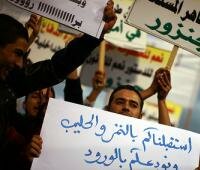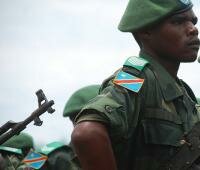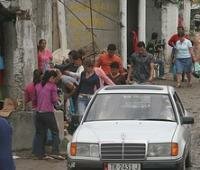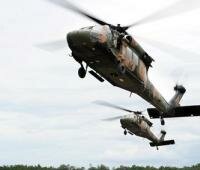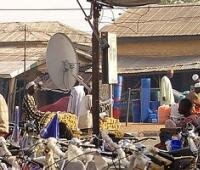Holding Libya Together: Security Challenges after Qadhafi
Issue:Global militarisation
The structure of Libyan society under the Qadhafi regime, as well as during its demise and aftermath, was and remains peculiarly fragmented. The former dictator deliberately kept state institutions weak (in particular the army) in order to prevent the formation of an organised opposition and to create a cult of leadership centred on himself and his family. The consequence for the nature of the uprising was that rebel forces were fragmented, their control over the country was acquired piecemeal, and the internationally recognised National Transitional Council has had tenuous legitimacy outside its base in Benghazi and the east.
Now that the regime has fallen, the process of rebuilding should be underway; but Libya has many autonomous, disconnected and heavily armed militias, all of whom have independent claims on their country's liberation as well as the fire power to back those claims. A Crisis Group Report from December 2011 examines the tricky path that the authorities must navigate in order to successfully disarm, demobilise and reintegrate into society Libya's rebel fighters, without plunging the country back into violence. Many of the young men who took up arms and joined the rebellion found in it a dignity long denied them by lack of economic and employment opportunities. So while the number of weapons in circulation must be dramatically reduced, the status that they bestow needs to be met by other means.
Article Source: Crisis Group. To read the full Report, click here
Image Source: United Nations
Read more »Posted on 30/12/11
Arms Flows to Sub-Saharan Africa
Issue:Global militarisation
SIPRI has published a policy paper examining arms flows into sub-Saharan Africa. The summary of the report indicates that even legal transfers into the continent have implications for peace and security, not only because many SALW (small arms and light weapons) make their way illicitly to rebel groups or countries under UN embargo, but also because, "The supply of arms can be argued to to have been an incentive for the recipients to try to achieve their goals via violence instead of dialogue." The summary also touches on the motives behind supplier countries' weapons sales, which include securing access to natural resources in the mineral-rich continent.
There is a general need for more clarity throughout the arms-transfer process, as African governments themselves are not necessarily forthcoming in their reasons for wishing to purchase weapons, despite regular expressions of support for international arms control initiatives. With the waters this muddied, arms purchased both legally and illegally pose a serious threat to security in Africa.
(To view or purchase a copy of the full policy paper, please go to the Publications page on the SIPRI website)
Article Source: Stockholm International Peace Research Institute
Image Source: Enough Project
Read more »Posted on 21/12/11
Inequality: What’s the policy narrative?
Issue:Marginalisation
The following article from Global Dashboard takes on the issue of 'inequality' by attempting to address what exactly is understood by the term, why it is so bad for society, and what can be done about it. While many reports focus on the damage done to economic growth by inequality, or the sheer moral wrong in the existence of extreme poverty, this piece also refers to the security implications of high inequality when combined with other potential social faultlines such as ethnicity. However, the closing list of policy recommendations, tested with success in many Latin American countries, shows that this threat can be alleviated if met with determined cross-societal political will.
Article Source: Global Dashboard
Image Source: Hans Zinsli
Posted on 19/12/11
Australia Remilitarizes
Issue:Global militarisation
Australia has recently begun to remilitarize in contrast to global trends of cuts in spending. As geopolitics shift from the Atlantic to the Pacific and the rise of China dominates concerns over the balance of global power, Australian investment in the military - and the navy in particular - shows a change in attitude towards security in the region. However, as an article from Foreign Policy in Focus demonstrates, China has not reacted positively to the change in gear in military development nor to Australian intentions to reopen uranium sales to India. Moreover, a 2009 White Paper refers to potential Australian aspirations "...to have greater strategic influence beyond our immediate neighborhood".
Article Source: Foreign Policy in Focus
Image Source: Australian Defence Force
Read more »Posted on 14/12/11
A tale of two cities: Durban and Brussels
Issue:Climate change
The UN climate change negotiations in Durban began under a cloud of low expectations, which have been partly dispelled by the last-minute agreement to extend the legally-binding Kyoto Protocol on greenhouse gas emissions. And while Canada, a major emitter, has pulled out of the Protocol, a new environmental divide has emerged that contrasts with the traditional paradigm of developed versus developing countries: the new faultline pits the United States, Canada, China and India, who oppose legal limits for a variety of economic reasons, against the European Union, African, Latin American and island states who favour binding measures - often for reasons of national survival.
In an article by Camilla Toulmin, the Director of the International Institute for Environment and Development, the contrast is made between the dynamics that have driven both the climate talks in Durban and the debate on European financial regulation that ended with a British veto.
Article Source: International Institute for Environment and Development
Image Source: European Parliament
Posted on 13/12/11
Boko Haram: Nigeria's growing new headache
Issue:Marginalisation
The International Institute for Strategic Studies has published an article in Strategic Comments that focuses on the threat posed to Nigerian security by the Boko Haram Islamist group. By placing Boko Haram in a religious context, both historical and geographical, the author examines its recent emergence as an ideological player in Nigerian society. However, while articulating its vision through an Islamist framework, the group is largely focused on local issues of economic and religious marginalisation in the north, where 75% of the population live in poverty, compared with 27% in the south. The article also touches on conflict in the Niger Delta over control of resources, in a wider reference to the troubles facing the government in Abuja.
Article Source: International Institute for Strategic Studies
Image Source: pjotter05
Read more »
Posted on 1/12/11




